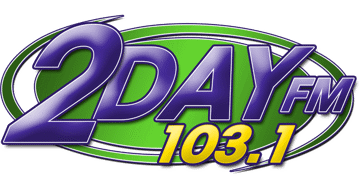Nebraska regents approve alcohol sales at all NU athletic venues, including Memorial Stadium and Devaney Center
 (1)-2024-10-05-07-12-14.jpg?width=610)
LINCOLN--All University of Nebraska athletic venues now have full approval to sell alcohol.
Today, the Nebraska Board of Regents voted 7-1 in favor of allowing beer, wine and liquor sales at all NU athletic venues, replacing a 2022 vote that allowed alcohol sales case by case. Until today, Nebraska was the sole Big Ten school that did not sell alcohol in its football stadium.
“The advantage of all 17 schools in the Big Ten doing this already is there are best practices,” Athletic Director Troy Dannen said at the meeting. “We know what works, we know what doesn’t work, we know where we need to capture particular areas of emphasis and security.”
Sales were permitted for the 2022 Big Ten Wrestling Championships and Volleyball Day in Nebraska in 2023. President Jeffrey P. Gold noted no major alcohol-related incidents at any of these events—a key concern for former football coach Tom Osborne, who has long been a vocal opponent of alcohol sales at sports events.
Regent Jack Stark of Omaha said he met with Osborne twice this past week and shared a written statement from Osborne at the meeting.
“I am not advocating for no beer sales as much as trying to give some perspective on what makes Nebraska a good place to watch a game for young and old,” Osborne said in the statement read by Stark.
“Selling alcohol in the stadium will change things. I witness this in NFL stadiums and other Big Ten schools,” Osborne said in the statement, recalling a time fans splashed beer on him at an away game in a stadium that allowed alcohol.
”I can promise you if that happened at PBA (Pinnacle Bank Arena) that person would be evicted immediately and that person’s privileges to own a ticket would be revoked,” Regent Timothy Clare said in response.
“Coach and I feel we need to monitor this very closely,” Stark said after reading the statement. Stark ultimately voted to approve the measure.
Gold assured regents and attendees that policies and procedures are in place regarding the sale of alcohol during games, including the duration of sales, quantity sold and types of products offered. He noted that these decisions can be made in real time rather than being strictly dictated by contracts, allowing for adjustments if needed, and said everything will be closely monitored.
“As a regent, I still feel responsible,” said Regent Kathy Wilmot of Beaver City, who voted against the approval. “We’re overlooking the fact these are family events; we’re setting examples,” Wilmot said.
Regular alcohol sales at Nebraska athletic venues have been gradually approved over the years. Alcohol has been sold at Baxter Arena in Omaha since it opened in 2015, and Nebraska began selling alcohol at Pinnacle Bank Arena for men’s and women’s basketball games during the 2022-23 season, as well as at Haymarket Park in Lincoln for baseball and softball games this past spring.
Clare said there also have not been any alcohol-related incidents at PBA since the approval.
“I received several emails from folks that were opposed to this and myself, and I’m sure other regents had the same concerns that were expressed in those emails; however, my job or our job as regents is not to assume what’s going to happen. It is to try to take what actual information is out there, the technical and studies that have been presented that are factual to that point,” Regent Jim Scheer of Norfolk said.
A University of Iowa peer reviewed study about the before and after effects of selling alcohol was a central part of the discussion.
In its first season selling alcohol in 2021, the University of Iowa saw a 50% reduction in alcohol-related emergency medical service calls and emergency room visits during the six hours after kickoff, compared to the 2019 season without alcohol sales. Dannen said that these findings align with reports from other institutions that have also studied the impact of alcohol sales.
“It was very interesting because my assumptions were not correct based on what the facts actually said,” Scheer said.
Gold said the University of Nebraska-Lincoln will conduct a similar study.
“I’m extremely on board with this change,” said University of Nebraska-Lincoln student body president Elizabeth Herbin. “From a student perspective, it will increase the safety on game days, which is a positive that we have seen across our Big Ten peer campuses.”
Revenue from alcohol sales will likely be shared between campus alcohol safety programs and the respective athletic departments, according to the regents, but the exact amounts are unclear.
University officials will begin searching for a third-party concessionaire as early as next week to assist with implementation and construction to support sales at Memorial Stadium will begin after the season, according to Dannen.
“There is much work to be done between now and then to get ready,” Gold said at today’s meeting. “But our athletic director Troy Dannen, who joins us today, and his team have good plans in place and are confident that they’ll be prepared to bring this new amenity to our fans again in a safe and responsible manner.”
